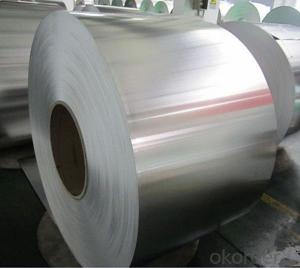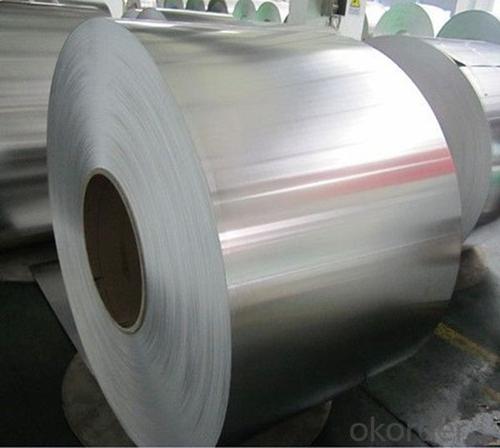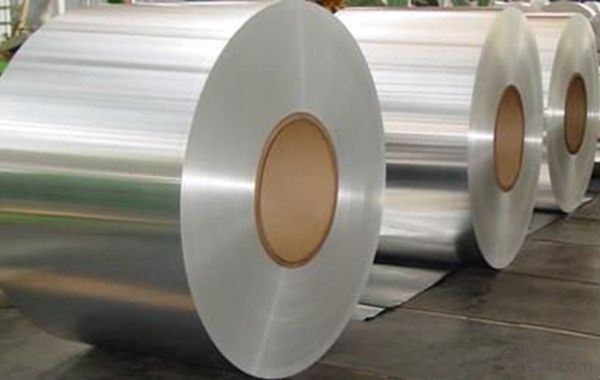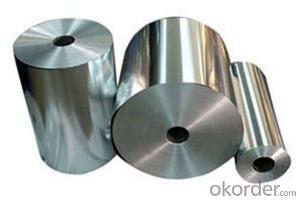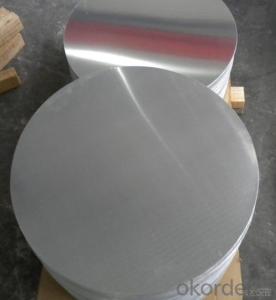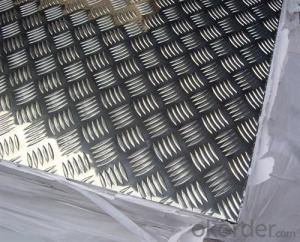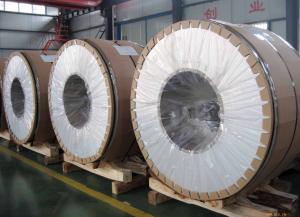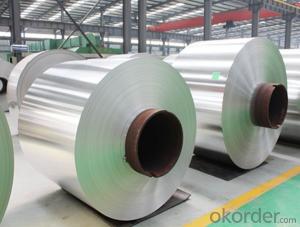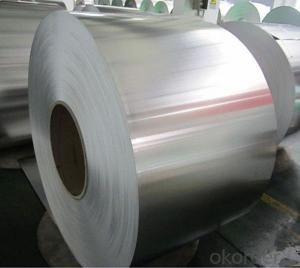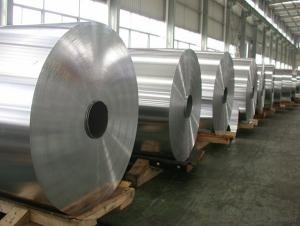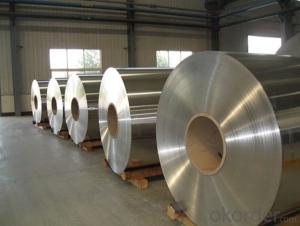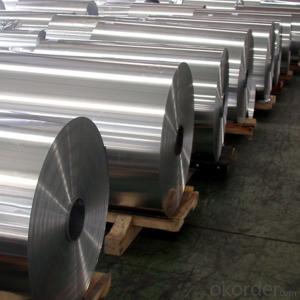Mill Finish Aluminum Coil Metal 5005 China Factory Direct Supply for Lowes
- Loading Port:
- Shanghai
- Payment Terms:
- TT OR LC
- Min Order Qty:
- 5 m.t.
- Supply Capability:
- 1000 m.t./month
OKorder Service Pledge
OKorder Financial Service
You Might Also Like
Specification
1. Specification of Mill Finish Aluminum 5005 China Factory Direct Supply
Alloy Number | AA5XXX |
Temper | H12, H14, H16, H18, H22, H24, H26, H32, HO, F |
Thickness | 0.1mm – 500mm |
Width | 10mm- 2200mm |
Standard | GB/T3880-2006, ASTM, ISO, EU standard |
2. Application of Mill Finish Aluminum 5005 China Factory Direct Supply
(1).Interior: wall cladding, ceilings, bathrooms, kitchens and balconies, shutters, doors...
(2).Exterior: wall cladding, facades, roofing, canopies, tunnels,column covers , renovations...
(3).Advertisement: display platforms, signboards, fascia, shop fronts...
3. Feature of Mill Finish Aluminum 5005 China Factory Direct Supply
Surfact Quality :
Be free from Oil Stain, Dent, Inclusion, Scratches, Stain, Oxide Dicoloration, Breaks, Corrosion, Roll Marks, Dirt Streaks and other defect which will interfere with use,
Mechenical Property:
Chemical Composite and Mechanical Property
4. Certificate:
SGS and ROHS(if client request, paid by client), MTC(plant provided), Certificate of Origin(FORM A, FORM E, CO), Bureau Veritas and SGS (if client request, paid by client), CIQS certificate
5. Image of Mill Finish Aluminum 5005 China Factory Direct Supply
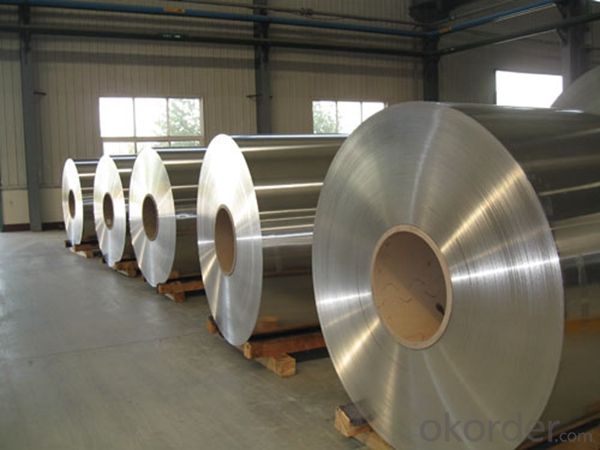
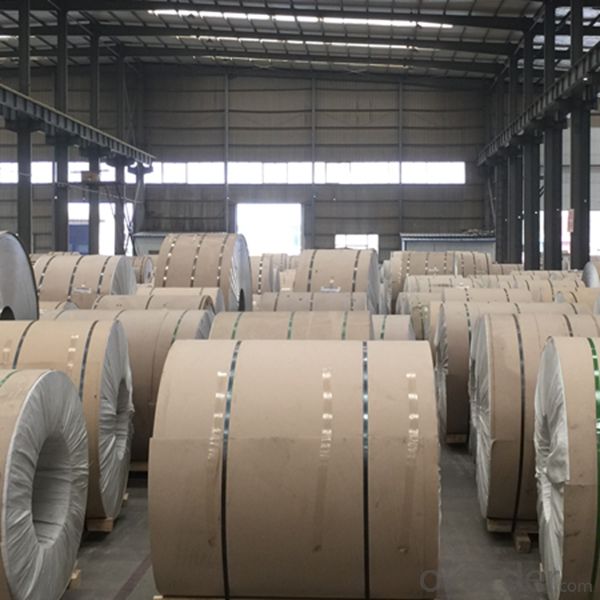
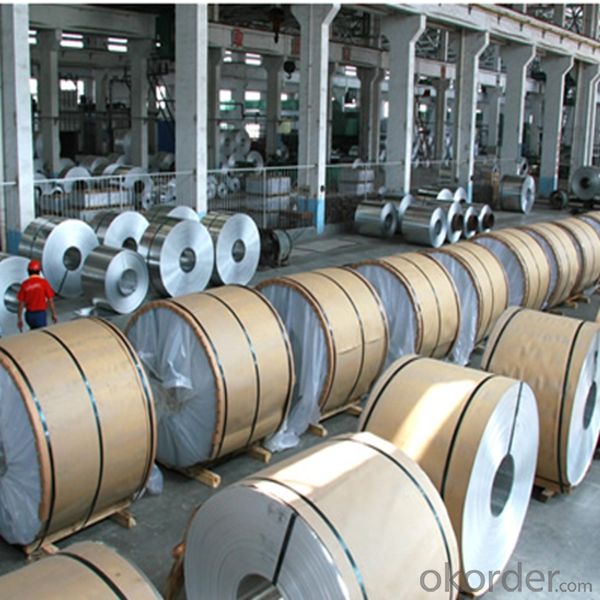
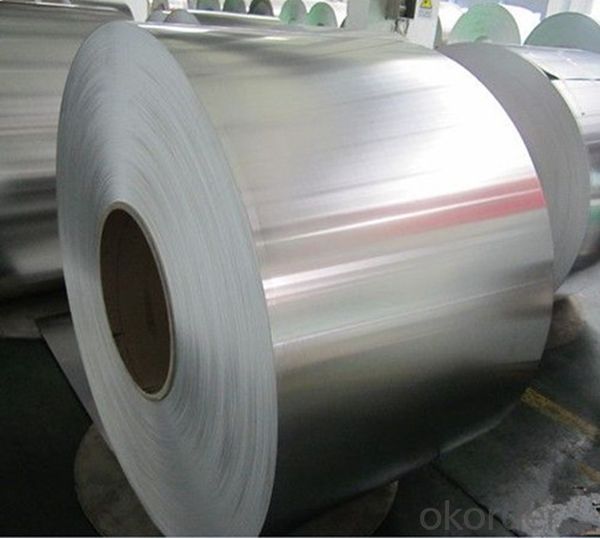
6. Package and shipping of Mill Finish Aluminum 5005 China Factory Direct Supply
First, plastic cloth with drying agent inside; Second, Pearl Wool ; Third, wooden cases with dry agent , fumigation wooden pallets, aluminum surface could cover blue PVC film
7. FAQ
1) What is the delivery time?
Dpends on actual order, around 20 to 35 days
2)What is the QC system:
We have QC staff of 20 persons and advanced equipment, each production is with MTC traced from Aluminum ingot lot.
3) What market do you mainly sell to?
Australia, America, Asia, Middle East, Western Europe, Africa etc
- Q: Are there any environmental benefits to using aluminum coils?
- Yes, there are several environmental benefits to using aluminum coils. Firstly, aluminum is a highly sustainable material as it is 100% recyclable without losing its original properties. This means that using aluminum coils helps reduce the demand for mining and extracting new raw materials, reducing the environmental impact associated with these processes. Additionally, recycling aluminum requires only about 5% of the energy needed to produce primary aluminum, resulting in significant energy savings and reduced greenhouse gas emissions. Moreover, aluminum coils have a longer lifespan compared to other materials commonly used in coils, such as copper or steel. This durability means that fewer coils need to be manufactured and replaced over time, resulting in less waste generation and lower overall environmental impact. Furthermore, aluminum is corrosion-resistant, which eliminates the need for additional treatments or coatings that may contain harmful chemicals. This reduces the release of potentially hazardous substances into the environment during the manufacturing and use of aluminum coils. Lastly, aluminum is lightweight, which contributes to lower transportation costs and energy consumption during distribution. This aspect decreases fuel consumption and associated emissions, reducing the overall carbon footprint of using aluminum coils. Considering these factors, the use of aluminum coils provides significant environmental benefits, including reduced resource extraction, energy conservation, waste reduction, and lower emissions.
- Q: Is it possible to use aluminum coils for decorative purposes in a garden setting?
- <p>Yes, aluminum coils can be used for decoration in the garden. They are lightweight, durable, and resistant to corrosion, making them suitable for outdoor use. You can form them into various shapes or use them to create unique garden structures such as trellises, sculptures, or even as part of a fence. Their metallic finish can add a modern or industrial touch to your garden's aesthetic, and they can be painted or left in their natural state to blend with different garden themes.</p>
- Q: Can aluminum coils be recycled?
- Yes, aluminum coils can be recycled. Aluminum is a highly recyclable material and can be melted down and reused multiple times without losing its properties. Recycling aluminum coils helps to conserve natural resources and reduce energy consumption.
- Q: Why the aluminum sheet crack after?
- Maybe the crack existed during welding but you didn’t notice. And then it expands and becomes obvious when acted on by external force in circling process. The reason may be the welding craft. Besides, I suggest more comprehensive tests after welding, such as penetrant test.
- Q: Are there any specific regulations for the transportation of aluminum coils?
- Yes, there are specific regulations for the transportation of aluminum coils. These regulations aim to ensure the safe handling and transport of aluminum coils to prevent any accidents or damage. Some of the key regulations include: 1. Packaging requirements: Aluminum coils should be properly secured and packaged in suitable containers to prevent shifting, damage, or falling during transportation. This may include the use of strapping, banding, or shrink-wrapping. 2. Weight restrictions: There are weight restrictions on the transport of aluminum coils, which vary depending on the type of transportation mode being used. These restrictions are in place to ensure the stability and safety of the vehicle during transit. 3. Loading and unloading procedures: Proper loading and unloading procedures should be followed to minimize the risk of damage to the coils and to ensure the safety of workers. This may involve the use of specialized equipment such as cranes or forklifts. 4. Hazardous materials regulations: In some cases, aluminum coils may be considered hazardous materials due to their flammability or other characteristics. If this is the case, additional regulations and requirements may apply, such as proper labeling, documentation, and handling procedures. 5. Transportation permits: Depending on the size, weight, and destination of the aluminum coils, specific permits or licenses may be required for their transportation. These permits ensure compliance with local, state, and federal regulations. It is important for companies involved in the transportation of aluminum coils to be aware of and comply with these regulations to ensure the safe and efficient transport of the coils. Failure to adhere to these regulations can result in fines, penalties, or even legal consequences.
- Q: Is it possible to utilize a press machine to bend aluminum coils?
- <p>Yes, you can use a press to bend aluminum coils. Presses are versatile machines capable of bending various materials, including aluminum. However, it's crucial to select the appropriate press type and size for the specific coil dimensions and desired bend. Additionally, ensure the press has the necessary tonnage to handle the bending force required for aluminum. Using the right dies and lubrication can also improve the bending process and prevent damage to the coils. Always follow safety guidelines and consult with equipment specifications to ensure the press is suitable for bending aluminum.</p>
- Q: How do aluminum coils compare to fiberglass coils in terms of weight?
- Compared to fiberglass coils, aluminum coils are generally lighter in weight. Aluminum is renowned for its lightweight properties, making it an excellent choice for various applications, including coil manufacturing. On the contrary, fiberglass tends to be denser and heavier than aluminum. This disparity in weight offers several advantages when it comes to installation and transportation. The lighter aluminum coils are easier to handle, necessitate less effort for installation, and can be more cost-effective for shipping and logistics. Moreover, the reduced weight of aluminum coils contributes to overall energy efficiency in HVAC systems, as it requires less power to circulate air through the coils. Nevertheless, it is important to note that the weight comparison between aluminum and fiberglass coils may vary based on the specific design and thickness of the materials utilized.
- Q: What are the differences among various types of steel wires and their respective coiling techniques?
- <p>Yes, there are differences between different types of steel wires and their coiling methods. Steel wires can be categorized based on their composition, strength, and use, such as carbon steel, stainless steel, and alloy steel wires. Each type has unique properties that affect their coiling methods. For instance, carbon steel wires are strong and ductile, suitable for standard coiling techniques, while stainless steel wires offer corrosion resistance and may require special handling to prevent damage. The coiling methods also vary; some common ones include spool coiling, loop coiling, and pancake coiling. Each method has specific applications and considerations for wire diameter, tension, and storage. Understanding these differences is crucial for selecting the appropriate wire and coiling technique for a given application.</p>
- Q: How do aluminum coils compare to stainless steel coils in terms of durability?
- Aluminum coils and stainless steel coils differ in terms of durability. Generally, stainless steel coils are considered to be more durable compared to aluminum coils. This is primarily because stainless steel is known for its corrosion resistance and longevity. Stainless steel has a higher resistance to corrosion, making it suitable for use in harsh environments or applications where there is exposure to moisture, chemicals, or high temperatures. It is less likely to rust or develop corrosion spots, ensuring a longer lifespan and maintaining its structural integrity over time. On the other hand, aluminum coils are more susceptible to corrosion, especially in environments with high humidity, saltwater, or acidic conditions. Aluminum coils are often coated or treated to enhance their corrosion resistance. However, even with these measures, they may still be prone to corrosion over time, which can compromise their durability. That being said, the durability of both aluminum and stainless steel coils can also depend on other factors such as the quality of the materials, the manufacturing process, and the maintenance and care provided. Regular cleaning, proper storage, and preventative measures can help extend the lifespan of both types of coils. In summary, while both aluminum and stainless steel coils have their own advantages and disadvantages, stainless steel coils generally offer superior durability due to their higher resistance to corrosion. However, the specific application, environment, and maintenance practices should also be taken into consideration when determining the most suitable option for a particular situation.
- Q: This question asks for a comparison of the costs involved in purchasing new aluminum coils versus recycling old ones.
- <p>The cost of buying new aluminum coil versus recycling old ones can vary significantly based on several factors including market prices, quality of the recycled material, and the cost of recycling processes. Generally, recycling aluminum is more cost-effective as it requires less energy and resources compared to producing new aluminum from raw materials. The cost of recycled aluminum can be as low as half of that for new aluminum. However, the exact cost will depend on current market conditions and the specific requirements of the aluminum coils in question. It's advisable to get quotes from suppliers and recycling companies to determine the most economical option for your specific needs.</p>
Send your message to us
Mill Finish Aluminum Coil Metal 5005 China Factory Direct Supply for Lowes
- Loading Port:
- Shanghai
- Payment Terms:
- TT OR LC
- Min Order Qty:
- 5 m.t.
- Supply Capability:
- 1000 m.t./month
OKorder Service Pledge
OKorder Financial Service
Similar products
Hot products
Hot Searches
Related keywords
